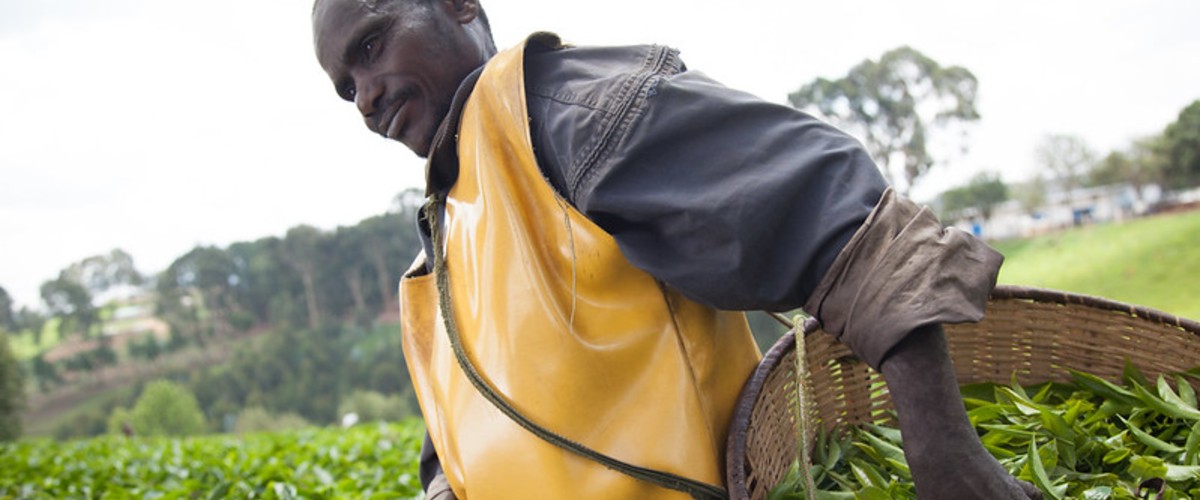FST BLOG
We need a more sustainable and healthy food system – but how?
- 27 May 2020
- Environment
- Francesca Harris and Amy Thomas

The global food system is responsible for 24% of all greenhouse gas emissions. These emissions are not sustainable for the future, but clearly, we can’t just cut these out. The COVID-19 pandemic has demonstrated the vulnerability of our complex food system, as supply chains have fallen apart and led to a rise in food insecurity. Climate change is expected to increase the likelihood of food shocks in the future, so there is an urgent need to start rethinking the way we consume, produce and waste food. How can we create a more sustainable food system, that produces enough healthy and affordable food for all?
To start with, we need to broaden our understanding of sustainability. The first thing we think about when measuring the sustainability of a food system is the carbon footprint, or greenhouse gas emissions, of a food product. But what about the amount of water that is needed to produce the food? Over two thirds of water used globally is for agriculture. Water shortages will increase as the climate changes, so we need to ensure food production and our food system is ready for this. Agriculture is also the main driver of global biodiversity loss; where farm lands encroaches on natural habitats.
To reduce these impacts, we can change our food choices. Mounting evidence suggests that if we reduce our consumption of meat and dairy this would be better for the planet, as these foods have high emissions, and use large amounts of water and land to be produced. But we must not ignore the fact that poor diets are the leading cause of death and disease worldwide. Shifting to more environmentally friendly diets should not be at the detriment of human health – we must balance health and sustainability in our food systems. This balance between health and sustainability is known more broadly as Planetary Health.
Current evidence from the EAT-Lancet Commission suggests that a flexitarian diet is the best diet for people’s health, and for the environment. The diet, known as the Planetary Health Diet is the least likely to cause heart disease and some types of cancer, and has the lowest environmental impact, as compared to other dietary patterns. The Planetary Health Diet is mainly focused on plant-based foods, which require less resources such as land, water and fertilisers, and includes small amounts of fish, meat and dairy.
Although there is evidence that eating less red and processed meat is better for our health, the evidence around a fully plant-based or vegan diet is mixed. More and more processed vegan products are being developed with high amounts of salt, sugar and saturated fat. Although they are marketed as vegan, they are not necessarily good for our health, or for the planet.
However, sustainability isn’t just about what food we eat; we also must consider the physical place and context in which it is grown. Environmental impacts vary depending on the type of climate and soil, as well as the agricultural system that produces it. The greenhouse gas emissions of the average bean grown in the UK using high-tech machinery and fertiliser will be considerably higher than a bean grown by a small-scale farmer that doesn’t have access to carbon-intensive resources, even after accounting for air miles.
This is where interventions like food sustainability labelling can play a part. Labels can help consumers understand the environmental impact of different foods; depending on where and how they are grown. Labels will also force the industry to become more transparent in their production process and hold them accountable for sustainability.
Food shortages and insecurity during the COVID-19 pandemic have exposed the complexity of global food trade, as well as the value. They have demonstrated gaps in our understanding of where food is coming from, and where our food supply is at risk. Food trade can be hugely beneficial for our food system, as it enables us to eat a variety of foods from around the world. Trade contributes to healthy diets and prosperity as businesses can access larger markets to sell produce. This is especially important for countries that struggle with water or land shortages who cannot produce sufficient food alone. To continue and improve access to healthy food and reduce the risk of disrupted food supply – whether that be from global pandemics or climate change - we must increase accountability in this highly powerful and essential system.
There are other issues that hinder the sustainability of our food system that have not been addressed here; like food waste, plastic packaging and income inequalities. Additionally, the complexity of our food system presents a major challenge for any solution. Actions can have a domino effect, for example reducing livestock manure may increase the need for synthetic and manufactured fertiliser, which may have other environmental consequences. Farmers are the major piece in this complex puzzle, and they need to be part of any solutions.
What we do know is that there is a clear and urgent need to create food systems that provide healthy food to everyone today and in future generations, without exploiting human or planetary resources. Perhaps eating the Planetary Health diet is a start.
Image Credit: World Bank
Francesca Harris is part of the Sustainable and Healthy Food Systems project (SHEFS) at the London School of Tropical Medicine. She is undertaking a PhD on the links between food consumption and water security in India. Amy Thomas is the communications lead for the Centre on Climate Change and Planetary Health at LSHTM.
